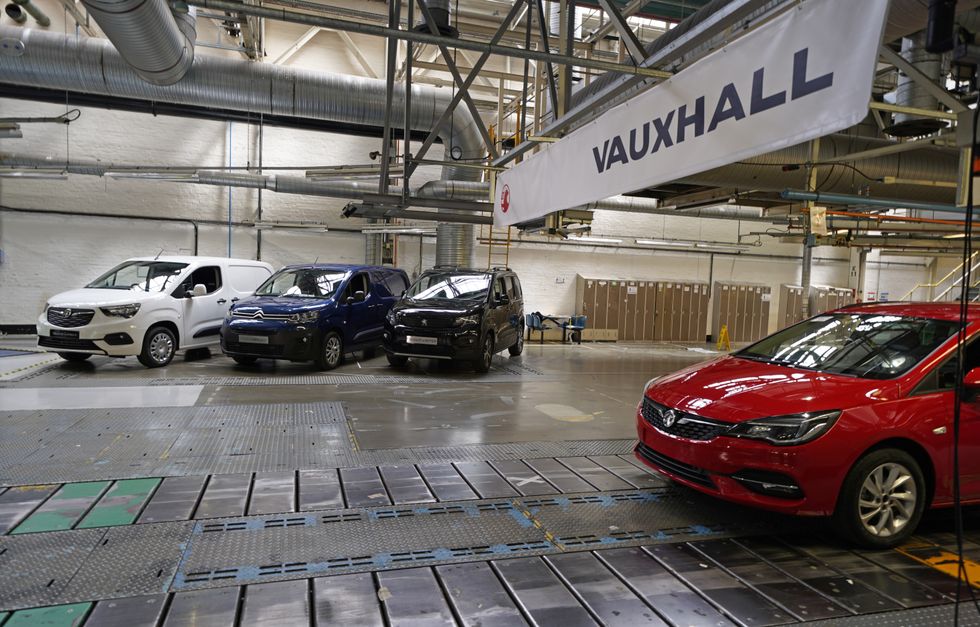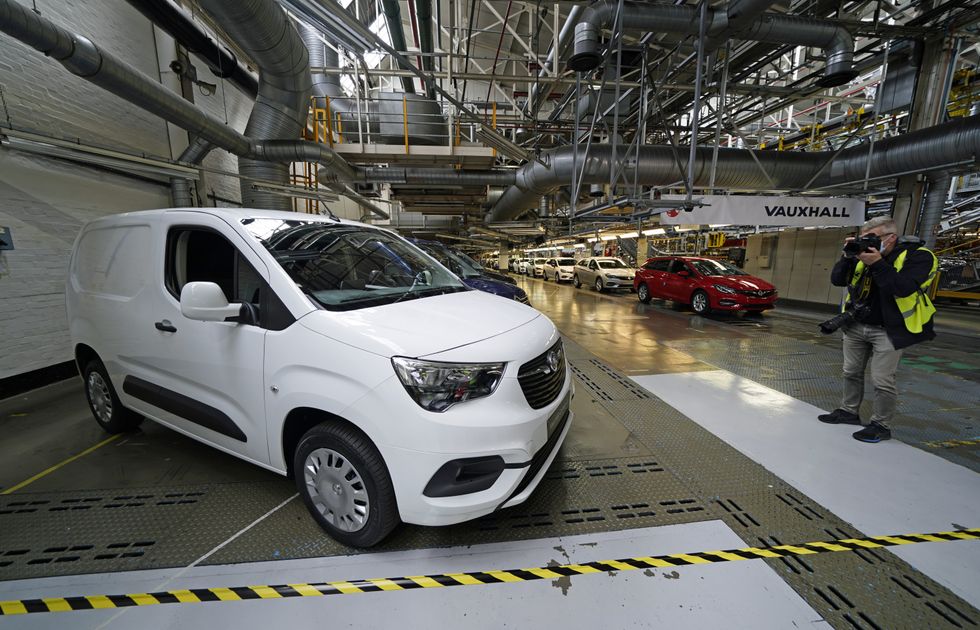A Stellantis boss warned that the brand could quit the UK
REUTERS
'In the UK there will be consequences [from the ZEV mandate] for sure
Don't Miss
Most Read
Trending on GB News
One of the world's largest vehicle manufacturers, Stellantis, has warned that it could halt production of new cars in the UK unless the Government boosts the uptake of EVs.
Stellantis, which includes brands such as Citroen, Fiat, Peugeot and Vauxhall, has hinted at leaving the UK, with a decision potentially being made in "less than a year", PA reported.
The manufacturing giant said more needed to be done to support drivers in transitioning to electric cars, highlighting the implementation of the Zero Emission Vehicle (ZEV) mandate.
At least 22 per cent of new cars and 10 per cent of new vans sold by each manufacturer in the UK this year are required to be zero emission under the rules introduced at the start of this year.
Do you have a story you'd like to share? Get in touch by emailingmotoring@gbnews.uk

Stellantis warned that a decision on its UK future could be made within a year
PAMinimum sales targets will continue to grow to 80 per cent of new cars by the end of the decade, followed by 100 per cent of all vehicles in 2035.
Brands can be slapped with fines of up to £15,000 per polluting vehicle sold above the limits, although experts predict that fines won't be levied as brands can purchase credits from other manufacturers.
Speaking at an event hosted by the Society of Motor Manufacturers and Traders, Maria Grazia Davino, UK boss of Stellantis, said more needed to be done to support motorists.
She said: "Yes, we can continue to grow. We can survive because we are fit for every circumstance.
"In the UK there will be consequences [from the ZEV mandate] for sure. Stellantis UK does not stop, but Stellantis production in the UK could stop.”
Stellantis currently manufactures electric vans at its Ellesmere Port factory, with further plans to transition its Luton plant to build electric vans from next year.
Grazia Davino also called on all political parties to boost the uptake of electric vehicles adding that she wants to keep Stallantis production to remain in the UK.
Political parties have already outlined pledges to support the uptake of zero emission vehicles, including a boost to the EV charging network and targeted grants for drivers.
The Green Party is in favour of the biggest changes, with plans for an "extensive vehicle scrappage scheme", in addition to an end to sales of new petrol and diesel vehicles by 2027 and to the use of internal combustion engine vehicles on the road by 2035.
Commenting on the Stellantis warning, ManMohan Sodhi, Professor of Operations and Supply Chain Management at Bayes Business School (formerly Cass), said other brands would "take its complaints to the public".
He added that the current situation was a consequence of Brexit, with measures being more restrictive than in the EU and without the consideration of reducing emissions.
The expert added: "The EU and the UK have imposed regulations on automakers for CO2 emissions reduction targets.
LATEST DEVELOPMENTS:
- Tesla forced into another major recall of Cybertruck electric vehicles over serious safety issues
- Huge lorry fire forces major road to shut as drivers urged to avoid area with long delays expected
- Sainsbury's Nectar card offer could see electric car drivers benefit from triple points in limited-time deal

The Ellesmere Port factory already produces electric vans
PA
"However, there is a stark contrast in their approaches. Manufacturers can meet the requirements in the EU by selling a mixture of hybrids and EVs, a more flexible approach.
“On the other hand, the UK's approach is more stringent, requiring the sale of a minimum percentage of fully electric cars or facing fines of £15,000 per non-compliant vehicle sold.
"This stark contrast in regulations has significant implications for the automotive industry."








